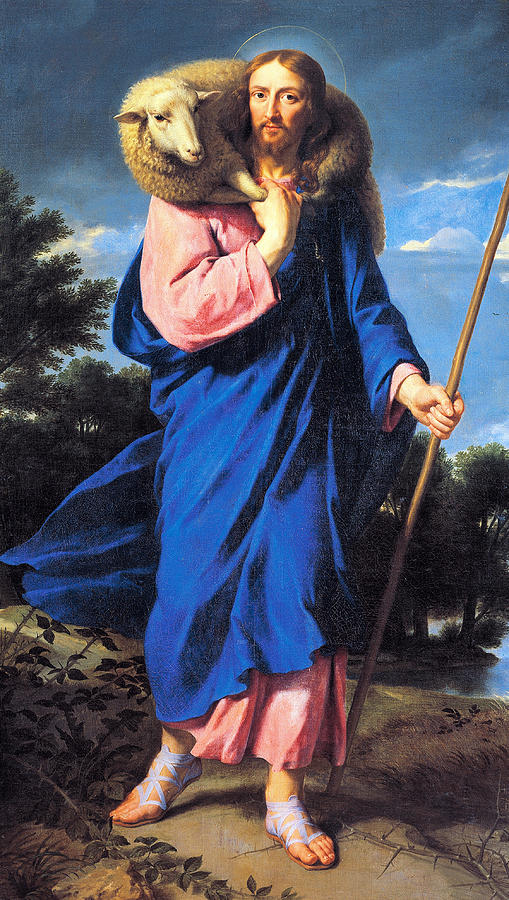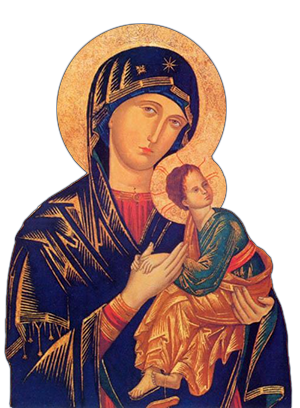Fr Maurice: Jesus as model of leadership

In a certain sense we are all leaders. We have leadership in the church, in society. Political leadership. Society leadership at different levels. Today’s liturgy is the opportunity to learn from the style of leadership of Jesus.
The contrast is very stark. The sheep represent dependency, absolute vulnerability. The sheep are the ones that cannot help themselves. They have to depend on everything from the shepherd. The sheep cannot make a decision.
It’s an image of what could be considered as the confidence of a child in the arms of a mother. The child depends on the mother for everything. The child expressed himself is by crying and screaming and the child expects the mother to interpret that language.
The sheep takes from that sense of utter dependence of one that has to count on others for survival. That is the image that Saint John uses. And the sheep is really each and everyone of us, called and invited by God into a relationship of dependence.
And we have those who are dependent on us: our children, friends, family members, our church depends on us. So that sense of dependency is really what emerges clearly from the image of the sheep.
But how about the image of the shepherd? Jesus says to us in the Gospel, “the sheep hear my voice, I call them by name, and I lead them.” (John 10:3)
There is a sense of possessiveness. The sheep hear the shepherds voice, the shepherd leads them, the sheep follow him because they recognize the voice of the shepherd. They will not follow a voice that they do not recognize. They will also not follow one they cannot identify with. The Gospel also tells us they will run away from the stranger. (John 10:5)
But there is something that is peculiar about this sense of possessiveness that emerges in relationship between sheep and shepherd. Between the Christian and Jesus. What is central to this possessiveness? Its is this desire of the shepherd to bring out the best in the sheep. To help the sheep to grow to its fullest potential. To help the sheep to realize the endowments, the giftedness that the sheep possesses.
In today’s readings, the shepherd leads the sheep to green pastures (Ps 23:2). He leads them to feed them, to nurture and nourish them.
And that is the model of leadership that emerges regarding the person of Jesus. That to be a leader is not to possess the supported in a way that crushes the life out of the them, or in a way that makes the supported become like a blind person just following him.
On the contrary, what is central to the possessive character of Jesus is that desire to lead so that the subject, the subordinate grows, is empowered, develops, flourishes. That comes with its own risk.
Every parent will tell you that sometimes the parents will do all the best for the children, give them all, and there is no vacation from being a parent. They are always there. The good parent watches over the child. From the time the child gets into the world to the time the child becomes an adult.
That’s what Jesus does. But it also comes with its own risk. To tell you the risk, Jesus talks about the stranger that enters the picture. The stranger is a metaphor for all that is not good. He is a symbol for all that is contrary to the relationship between the sheep and the shepherd.
The stranger is the one who comes to destroy, and erase all that has been planted by the shepherd.
Some parents once said to me, you know father, I really did all I could. I sent them to Catholic schools. I raised them up in the Church. I don’t know what has become of them. It pains my heart. This is not what I taught them. I tried to instill all the Christian values in them but they don’t even talk to me anymore, they don’t even try to reach out to me.
Those risks are not strange in our world of today. And that is what the stranger does, he comes to deprive. To take away the good that has been planted by the shepherd in the sheep.
But the second part of the Gospel really helps us to go forward, in spite of what the stranger, who Jesus describes in very strong language. Jesus says he is a thief and a robber, he comes to steal, to kill, and to destroy. But Jesus gives something that is powerful for us as parents and as leaders.
“I have come that they may have life and have it abundantly.” (John 10:10)
In other words, the Lord does not get discouraged by the work of the anti-Christ because the true measure of the lord is to love without measure it can hurt, it can be painful, but the Lord tells us that the response to the work of the thief is not to walk away and abandon the sheep. On the contrary, the response is to love more, because that is really the only thing that can rescue the sheep.
How many times have we been challenged as parents, as leaders, to lead in our leaves. Again and again, it hurts, it pinches. And we ask ourselves, what is the point of all this suffering, of me doing this, what do I have to gain from all these sacrifices when all I get is indifference, when all i get is the work of the thief?
The Lord tells us to continue to love, because that is what moves the good shepherd, and he is the one that loves until the end.
Peter says Christ suffered for you leaving an example (1 Peter 2:21). Let us always remember that the model of leadership of Jesus is a model of love, a love that loves till it hurts, pinches, to the sacrifice on the cross.
Whenever we feel discouraged, and are tempted to walk away, and give up, always remember, the model of the Christian leadership is to love til it pinches and when it pinches to continue to love. Only that way do we enter into the example of Christ who suffered for us, and loved til the end.
– Fr Maurice



